Producer’s Pride 16% Layer Poultry Feed Crumbles, 40 lb.
The Producer’s Pride 16% Layer Poultry Feed Crumbles is a high quality feed at an everyday great value. This delicious feed crumble is fortified with calcium for strong shells making it perfect for egg laying chickens.
The Producer’s Pride 16% Layer Poultry Feed Crumbles is a high quality feed at an everyday great value. This delicious feed crumble is fortified with calcium for strong shells making it perfect for egg laying chickens.
- Feed for the whole farm; when it comes to keeping your animals healthy, a proper diet is key; Producer’s Pride 16% mini-pellet layer chicken feed is a complete formula for egg-producing poultry, with the necessary vitamins and minerals needed to support productive hens
- We love animals and know just what their bodies require; who better to make food for pets than farmers? At Tractor Supply Company, we bring our deep passion for land and animals to the center of our products and services; by sourcing the best produce, utilizing water purification processes and thoroughly testing our formulas, we guarantee excellent quality food for your animals
- Chicken feed is fortified with calcium for strong shells, plus vitamins & minerals
- This 16% layer feed crumbles are for egg laying chickens
Additional information
| Animal Type | Chickens |
|---|---|
| Food Form | Crumble |
| Packaged Height | 27 in. |
| Packaged Length | 6.25 in. |
| Packaged Weight | 39.8 lb. |
| Packaged Width | 16 in. |
| Poultry Life Stage | Adult |
| Manufacturer Part Number | 3005655-305 |

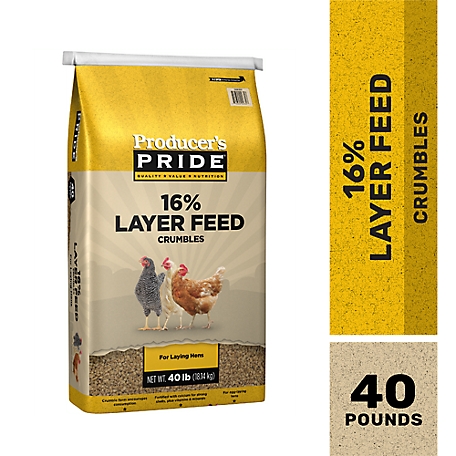

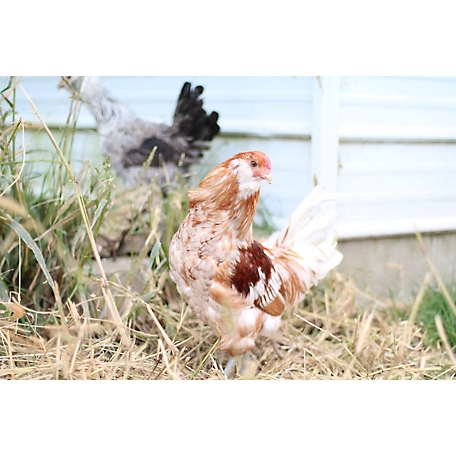
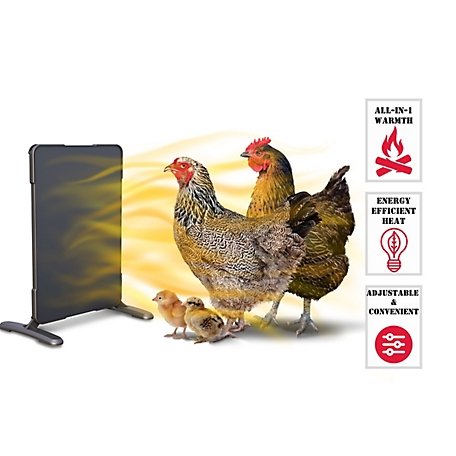

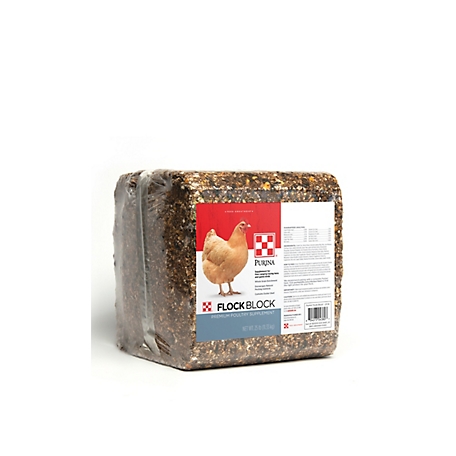



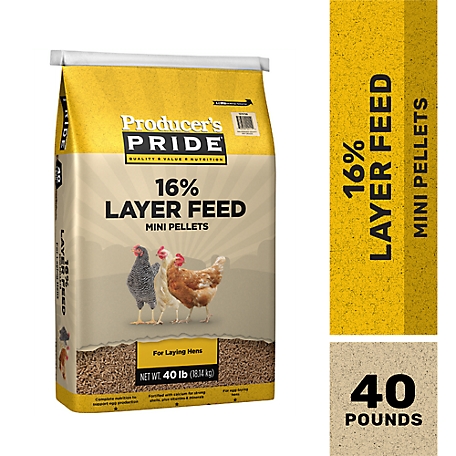
by Brit
Great feed. My chickens and rooster love it.
by Kim
Chickens love it and lay plenty of eggs.
by Anne
My ducks love this. I mix it with scratch grain. 2:1 ratio. I also do it with the mini pellets. Cant go wrong with any of this.
by Teena
Been using this for years.
by Corle
Wish it was 50lb.